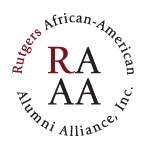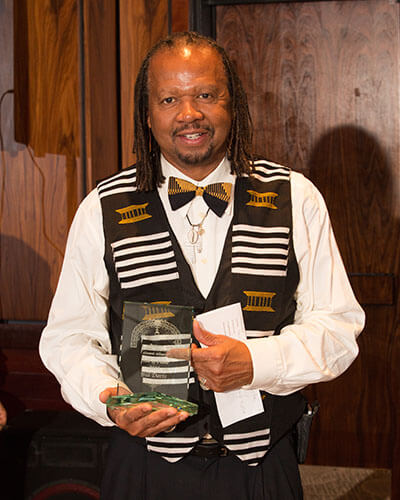William Davis Jr., more popularly known as Bill Davis and also affectionately called Brother Black, is a Newark native who was raised and educated in Plainfield. A significant event that impacted his journey was witnessing the rebellion aka riots in Plainfield in 1967. This protest was one of the factors that would shape his trajectory relative to expanding his knowledge and increased his involvement in the quest for freedom and justice. His mother, Mrs. Charlotte Davis, an advocate for African American culture and justice, was instrumental in his cultural development.
Bill attended Rutgers as an EOF student and majored in Africana Studies. As an undergraduate, Bill served as the president of the Students for Afro AmericanSociety, was a member of B.U.S.T. – Blacks United to Save Themselves, wrote for the Black Voice among other activities. The Rutgers climate was hostile for AfricanAmerican students and the attrition rate was very high. There were many protests which he participated in; one of the more memorable was the ‘basketball game’ protest whereby the game was stopped to demand improvement in conditions for African American students. One the activities that was notable was the ‘Tribute to the Black Man of America’ ceremony; as an effort to highlight the contributions of students and staff, Bill among others coordinated the event.
After graduation Bill was hired as an admissions counselor at Rutgers Camden with a focus on recruiting African American, Latino and EOF students, he was appointed with the help of two mentors; Don Phifer and Willie Hamm. During his undergraduate year she had the good fortune to work in admissions as a student recruiter.
Following his time in Camden, Bill was transferred to the New Brunswick campus and worked in EOF central office under the direction of Richard Nurse. During this time there were again numerous protests on campus to end apartheid in South Africa. Honoring the great tradition of our ancestors, he actively participated in these protests.
Upon a transfer to the Newark campus, Bill served as an EOF counselor and as the advisor to BOS – the Black Organization of Students. As the protest against apartheid continued, Bill along with several others started a male group to help improve graduation rates. After he joined a few community organizations he began to work with others for justice and became actively involved in the 1984 Jackson campaign. At the request of Lennox Hinds, Bill participated in the planning and convening of the first national anti-apartheid conference held in the country at Riverside church.
Bill served as the founding Assistant Director of the Office for African American Student Services at New York University prior to his return to New Jersey were he served as Director of the New Brunswick campus for Middlesex County College. During his tenure on the New Brunswick campus, he worked on the pre-college consortium project which provided educational experiences for 7th-12th grade Newark students. He created a pre-college program in Piscataway based on this model; Epic Vision Academy. Piscataway is a diverse community but African American students were under achieving and Epic provided students needed support to enhance their academic performance.
Bill currently serves as a training and consultant specialist at the Boggs Center on Development Disabilities at Rutgers Robert Wood Johnson Medical School. As a single parent for the past 23 years, he is the very proud father of 5 young adult children all of whom are also Rutgers alumni. All have African names or named after a great ancestor; Malaika, Sekou, Toussaint, Imani and Naeemah. He is also a proud grandparent of Nia who has brought his family immense joy. His parenting philosophy was greatly shaped by his father William Sr., his role in Bill’s life and their family was profound as they were all touched by William Sr.’s care and concern. Bill continuously attempts to live his life by the philosophy of lifting as we climb. In tribute to those who were instrumental in his development, his life long goal is to pay it forward and honor our great ancestor tradition.

